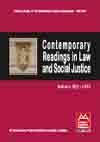ELOQUENCE EDUCATION IN QUINTILIANUS’ WRITINGS
ELOQUENCE EDUCATION IN QUINTILIANUS’ WRITINGS
Author(s): Aurel M. CazacuSubject(s): Language and Literature Studies
Published by: Addleton Academic Publishers
Keywords: argumentation; deliberative speech; eloquence; judicial speech; oratory; persuasion; rhetoric; rhetoric manners
Summary/Abstract: At the end of a life dedicated to teaching and juridical practice, Quintilianus proposes in his work, Institutionis oratoriae libri XII (The Principles of Oratory), published in 95 B.C., to remove the false adornments of the declamations practiced in the Senate and in the Roman Forum, still anchored in Schools of Rhetoric and in the culture of his times, by training a future orator from the very beginning. As this education cannot resume itself only to the eloquence skills, Quintilianus foresees a complex education which has to start since childhood, and leads gradually to the character modeling of the future orator. The dual accent on intellectual and moral instruction engaged the 15th and 16th humanists and due to them it influenced the modern perspective upon education, as total instruction, having the role of training the disciple for life. The good taste and rational leading principles marked a new classification of Roman eloquence which was not disputed for a while.
Journal: Contemporary Readings in Law and Social Justice
- Issue Year: V/2013
- Issue No: 2
- Page Range: 987-991
- Page Count: 5
- Language: English
- Content File-PDF

